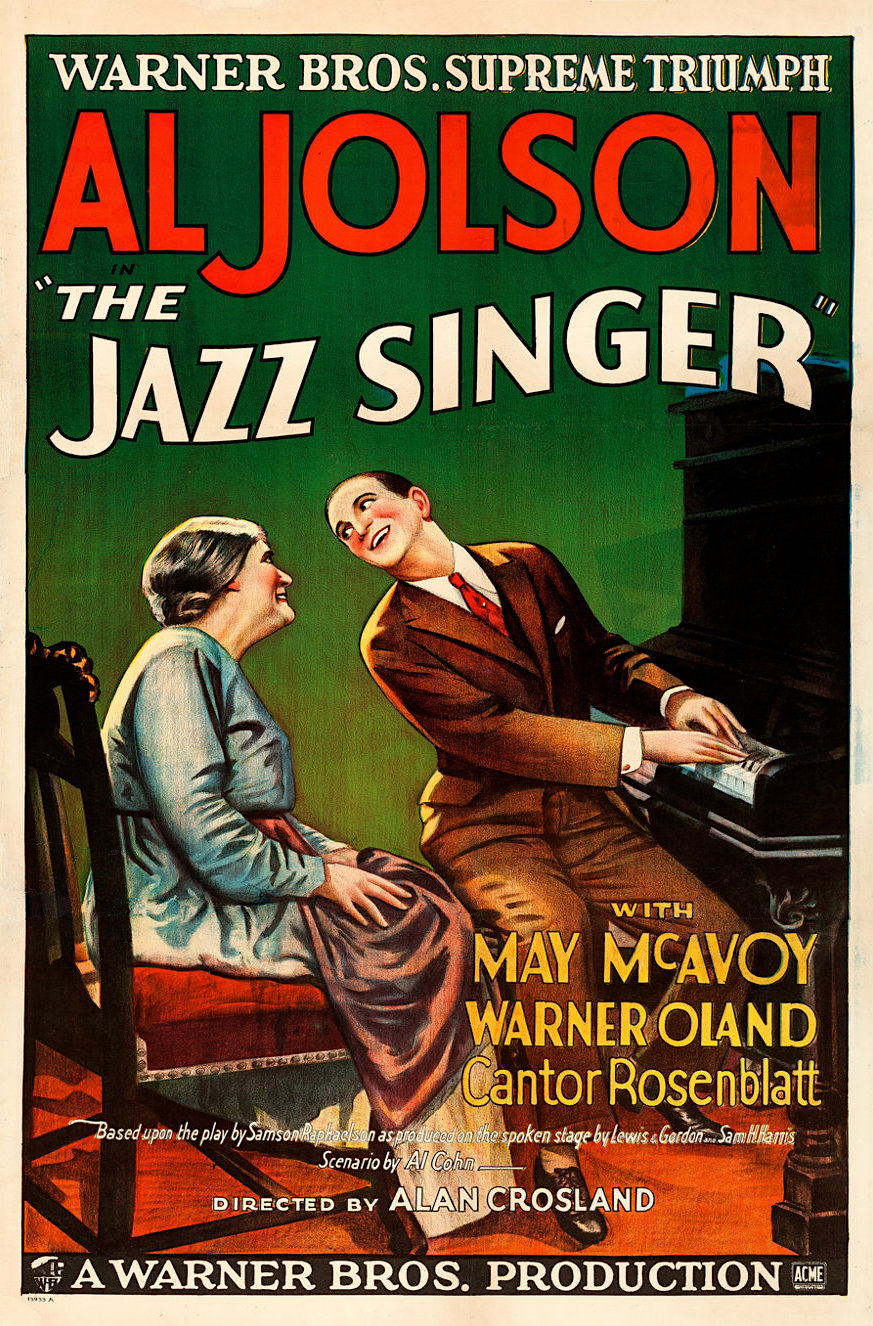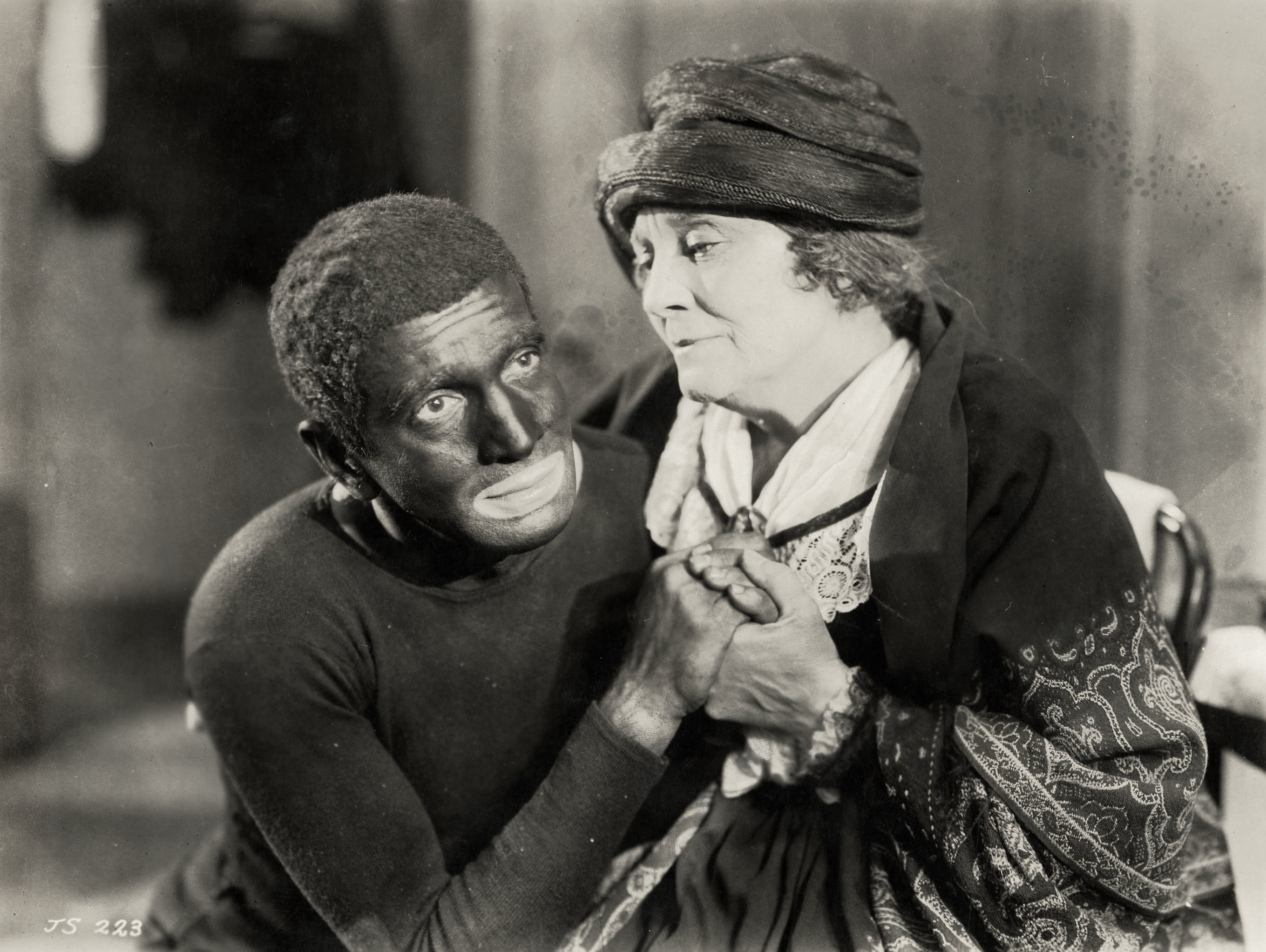 #38- The Jazz Singer (1927)
#38- The Jazz Singer (1927)Starring: Al Jolson, May McAvoy, Warner Oland
Directed by: Alan Crosland
Plot Summary: As a child, Jakie Rabinowitz has a passion for being a jazz singer, a passion that his father strongly disapproves of. With five generations of Cantors in the family, Jakie is given a whipping by his father to convince him to give up singing. Jakie then runs away from home, vowing never to return. Ten years later, Jakie has become a professional jazz singer, under the name Jack Robin. After being introduced to Mary Dale, Jakie is given his big break as the lead in a new musical, April Follies. At the same time, Jakie's father becomes ill and it is now up to Jakie to decide which is more important: the show, or his family and faith.
Before beginning the actual review, I would like to take a moment to apologize for a large gap of time between this review and my last one. These past few weeks have been very hectic in finishing the school year, moving into my summer housing, and looking for a summer job. I'll be spending the next few weeks trying to get back on the reviewing schedule I had originally planned for the summer. Keeping up with the theme of film history, The Jazz Singer is one of the most important films in history for its innovative use of sound at a time when all films were silent.
 The film stars Al Jolson as the main character, Jakie Rabinowitz. Jolson adds a lot of flavor to the character, and has enough bravado and charisma to charm audiences with his performance. The layers of Jakie as a character has to do with his motivations (his love of music and expressing himself) and the relationships he has with a handful of good supporting characters.
The film stars Al Jolson as the main character, Jakie Rabinowitz. Jolson adds a lot of flavor to the character, and has enough bravado and charisma to charm audiences with his performance. The layers of Jakie as a character has to do with his motivations (his love of music and expressing himself) and the relationships he has with a handful of good supporting characters.Jakie's main love interest is Mary Dale, played by May McAvoy, who is a strong enough character that supports and loves Jakie, and serves as a bridge between Jakie and his struggles with his family that plagued him since childhood. Cantor Rabinowitz, played by Warner Oland, is a no-nonsense father-type character who disapproves of his son's love of music because of his loyalties to upholding family tradition (five generations of Cantors in the family broken by his son's pursuit of being a jazz singer). But the best relationship in the film is between Jakie and his mother, played by Eugenie Besserer. She tries her hardest to maintain the relationship between Jakie and his father, and is really Jakie's main motivation in trying to make amends. Jakie loves his mother to the point where the film's final scene involves him singing the song "My Mammy" in front of her and a live crowd.
While the film is known for its use of sound, it is only used for scenes involving Jakie singing. Of course, the film utilizes sound to emphasize the beauty in Jakie's singing, almost serving as a representation of the sheer power in his voice, that it brought sound to film for the first time ever. It's often said that a little can go a long way, and in the case of The Jazz Singer, it certainly goes a long way in introducing a whole new form of technology in filmmaking.
Rating: 3 out of 5 stars
The Jazz Singer certainly has its spot in film history, but much of the film has not aged well, and despite its use of sound, feels more like a silent film than people would expect. A recommendation for movie buffs as a demonstration of how sound in film has evolved over the decades.
Comment below to share your thoughts on the movie or to discuss a topic that I left out of my review
The Jazz Singer and movie images are copyrighted by Warner Bros.
No comments:
Post a Comment